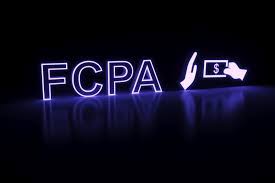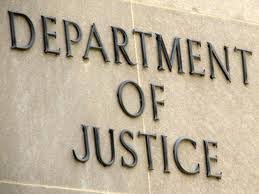Taking Stock of the FCPA Fallout (Part III of V)

What an amazing turn of events? — Who would have predicted that the Trump Administration would take such a bold action in the name of advancing “American Competitiveness.” I admit I did not see this coming — the Trump Administration during the first term had an aggressive record of FCPA enforcement. We all expected that to continue.
Boardrooms, C-Suites and Legal/Compliance professionals are stunned. How are they supposed to respond?
Companies have spent years and millions of dollars investing in ethics and compliance programs, recognizing that they faced significant FCPA enforcement risks, not only in the United States but in other countries as well. It made sense to build effective anti-corruption compliance programs because the stars were aligned — ethical companies perform better in the marketplace (we all know that) and protecting against bribery and corruption risks serves a vital part of a company’s overall ethics and compliance program.
Certainly, the message going forward is not — let’s go out and bribe government officials to win foreign business? But what is the message?

As pointed out in the Fact Sheet accompanying the Executive Order, the pause was needed to recalibrate FCPA enforcement because there was “excessive” and “unpredictable” FCPA enforcement that was making American companies less competitive in the global marketplace. Top translate this a little — the point being made is that: (1) prosecutors had stretched the meaning of the FCPA to apply to situations that were beyond the intent of the law; (2) companies complained because there were “costs” being imposed by aggressive interpretations of FCPA limitations;

In a sense, as Yogi Berra said — “It is Deja Vu All Over Again.”
Many of the same arguments were made almost fifteen years ago in 2009 and 2010 that FCPA enforcement was hurting American businesses. The effort was made to reform the FCPA and the US Chamber of Commerce was leading the charge.

There is no question that FCPA enforcement has always been a controversial issue — whether the statute was being followed, whether prosecutors were stretching the law beyond what was intended, and whether businesses and individuals were being subjected to a vacillating set of standards that made compliance difficult.
On the other hand, there were certain “core” concepts that few would disagree about. But the Trump Administration is raising a question that goes beyond the traditional legal line drawing exercise and the enforcement of consistent standards. The Trump Administration contends that FCPA enforcement puts U.S. companies at a disadvantage in global markets and that this can have serious national security concerns. In my view, this ais a policy argument than whether FCPA enforcement has been “excessive” or “unpredictable;” Rather, this gets at the point of what impact do increased costs — enforcement and compliance — have on companies when competing in the global economy.

My initial reaction to this approach is to determine whether U.S. companies being unfairly burdened — after all, global anti-corruption laws have become more commonplace in 2025 — The UK Bribery Act, the Clean Companies Act, SAPIN II, and others have a life of their own, and companies have to respond to these laws and the risk of enforcement. But maybe the point is that no one but the US DOJ is so aggressive when it comes to FCPA enforcement. That the U.S.-DOJ approach distinguishes the US from the other countries enforcement schemes.
In the end, DOJ’s Guidance on this new frontier which has opened up will tell all — if DOJ constrains FCPA enforcement by pulling back on some of the more aggressive approaches taken by DOJ on a number of issues that will be interesting; on the other hand, if DOJ’s Guidance restricts FCPA cases to those only involving cartels and transnational criminal organizations as set forth in the Bondi memorandum, that will mean a very different enforcement scheme.















